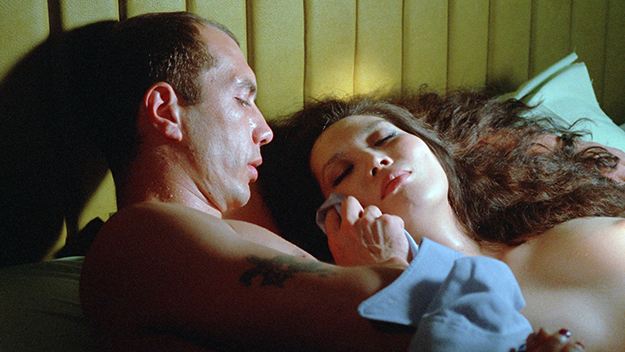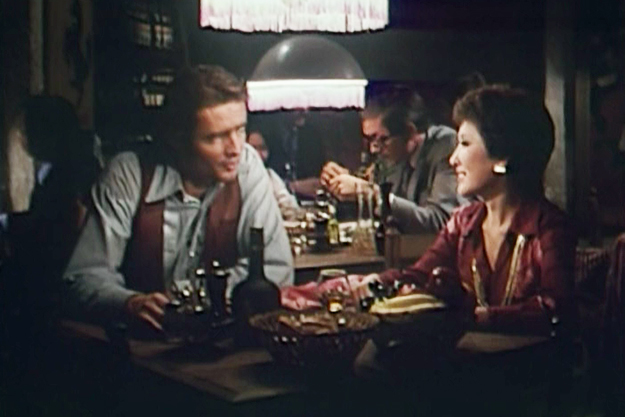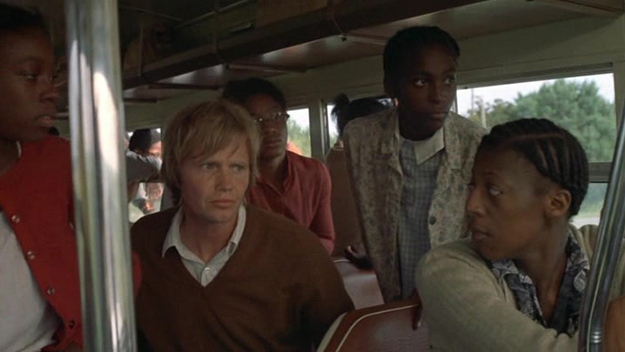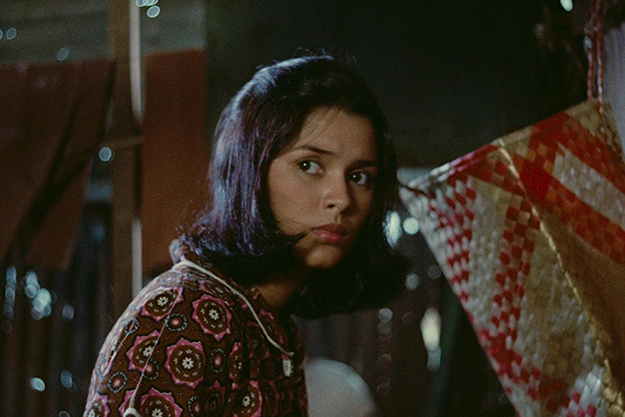Remembering Pierre Rissient
Those we ordinarily call friends and friendships are not more than acquaintances and familiarities tied together by some occasion or commodity by the means of which our spirits converse. In the kind of friendship I speak of, they mingle and merge into one another, a mixture so universal that they wear out and can no longer find the seam that joined them. If you press me to say why I loved him, I sense that this cannot be expressed other than by replying: “Because it was he, because it was I.” — Montaigne

Cinq et la peau
Michael Powell wanted to inscribe on his tomb, “Profession: amateur. Hobby: filmmaker.” On Pierre Rissient’s we could write, “Profession: discoverer. Playground: the whole world. Time periods: all of them.” And we would be omitting many things. He also directed films, notably the gripping and personal Cinq et la peau (Five and the Skin, 1982). Rissient was an eccentric character, much larger than his time. He fought against all conformities, any received opinions.
He was one of my oldest friends, someone I’d known for 54 or 55 years. And this friendship was made of steel. All those years it had never been tainted by the slightest quarrel or dispute. There were no squabbles around questions of money or ego. Here and there we had some nuanced disagreements on films, on filmmakers, but nothing fundamental, except for his negligence over his health and on issues of retirement.
Nonetheless, I saw Pierre fight with many others. He was demanding, and he didn’t like when people capitulated to acquire a star or achieve success. I was witness to many quarrels, most often for artistic reasons, including with Joseph Losey (who wanted Brigitte Bardot to play a virgin in La Truite, a choice Pierre believed would ruin the film and the novel by Roger Vailland), King Hu (who behaved very poorly), and Mike Leigh, whom he criticized for his bad behavior. I was witness to a couple of aborted reconciliations, like when Joseph Losey approached Pierre at La Mère Besson after the heated screening of A Doll’s House and, putting his hands on his shoulder, asked him, “How are you doing?” Pierre, caught short, retorted, “Better than the projection.” A resounding defeat.
Sometimes I would temper the conflicts; the rages of Pierre—occasionally justified, he would tell me—rivaled in notoriety with those of Claude Sautet, and we were so close that some of them were attributed to me, notably at the Telluride Film Festival.

Alibis
Like all great encounters, I don’t know exactly where we first met. Probably after a screening. Had it taken place at the Mac Mahon [the local movie house that Rissient had helped programmed in his youth] that had just been created? It was a very exclusive circle, but I was admitted along with my friends from Nickel Odéon. As it were, our film club had projected two of Pierre’s shorts, La Passe de trois and the pre-Rohmerian Les Genoux d’Ariane. Or was it after screenings of Criminels or Hercule à la conquête de l’Atlantide at the Mac Mahon?
I know it was around the time of the release of Joseph Losey’s Time Without Pity, which had moved me and on which I was writing two articles in two different magazines (Cinéma XXX and Positif). When I left the press screening, I immediately received a phone call from Pierre, proposing that we partner up and work together to promote only films that we liked and that we wanted to defend. I worked with him for more than a decade: on films that we chose, on those he was distributing for Mac Mahon. I remember the difficulties in getting critics to come to Ida Lupino films, as female films were not à la mode. We often split the work: I worked on all of Losey’s films after Eva (Accident, The Go-Between, Secret Ceremony, Figures in a Landscape). I don’t think that Joe was taken in by Kazan’s The Arrangement, a film and filmmaker that he detested, or other works distributed by Warner Bros., such as The Wild Bunch and Many Wars Ago.
Here again, no dark clouds. We quarreled once or twice, finding ourselves at Cannes with a documentary written by Walon Green; each of us thought it was the other who had picked it, and we were both shocked by the choice.
We practically never compromised our principles. I skipped out on the release of Hitler by Stuart Heisler, a talented filmmaker (something I learned long after, since the film had been butchered in the editing), and I remember there were a couple of films that we had chosen out of friendship, out of recognition, and where we didn’t have to make the slightest effort. One of them was warmly received immediately, and for the other we benefitted from the support of [French journalist and screenwriter] Michel Cournot, who did the work for us.

Conrack
I relived some of these moments in my book. And I recall the power, the acuteness of the ideas and opinions that he shared; his passion for certain writers, from Brecht to Vaillard; and for his dearest filmmakers, from Lang to Boorman and Schatzberg. (His circle grew, and he allowed me to discover, among others, Alfred Hayes.)
But I also knew the Pierre Rissient who was often 10 or 15 years ahead of the rest of the world’s critics, who refused watchwords and excommunications on principle. I witnessed how the discovery of The Molly Maguires shook his perception of Martin Ritt, a filmmaker he had not considered before; thereafter he defended Conrack and Sounder. I partook in his enthusiasm for Anatole Litvak’s Coeur de Lilas (Lilac), which forced us to plunge into the moving work of this filmmaker who had been ignored by the French critics. We shared the regret of never having met him.
Pierre, tireless viewer, insatiable inquisitor, was not a passive spectator. He spotted the guiding principles of a work (which sometimes had nothing to do with its themes), and his vision was never disconnected from reality, from the secret, interior life of a film. He could sense right from the dailies a talent beginning to emerge, could see from the first assembly of a film the structures, the dialogues that had to be swapped or cut, how to sharpen a scene, make its subject more interesting. He did not content himself with mere aesthetic judgment; instead he intervened, would get his hands dirty.
And there was no clericalist doctrine in his opinions, no submission to fashion or trends. On the contrary, the demands that he always exhibited provoked in him an understandable disgust at the capitulation of some intellectuals to politics and polls.

Insiang
I knew the Pierre who was so enthused for new films that he tried to get Cannes to show Lino Brocka’s Insiang; and who succeeded in releasing Tell Them Willie Boy Is Here by showing it to the Siritzky brothers, those passionate exploiters of cinema. Before dying, Jo Siritzky wrote to me: “The first commandment for me is, ‘Give us this day our daily film.’”
My book is a mirror of the passion that always emanated from Pierre: “Passion is the distraction of the heart,” wrote Vladimir Jankélévitch, to which Emile Zola responded: “Passion, this is what helps the most to live.”
Translated by Amy Chabassier. With permission from Bertrand Tavernier from the book Mister Everywhere, published by Actes Sud.







